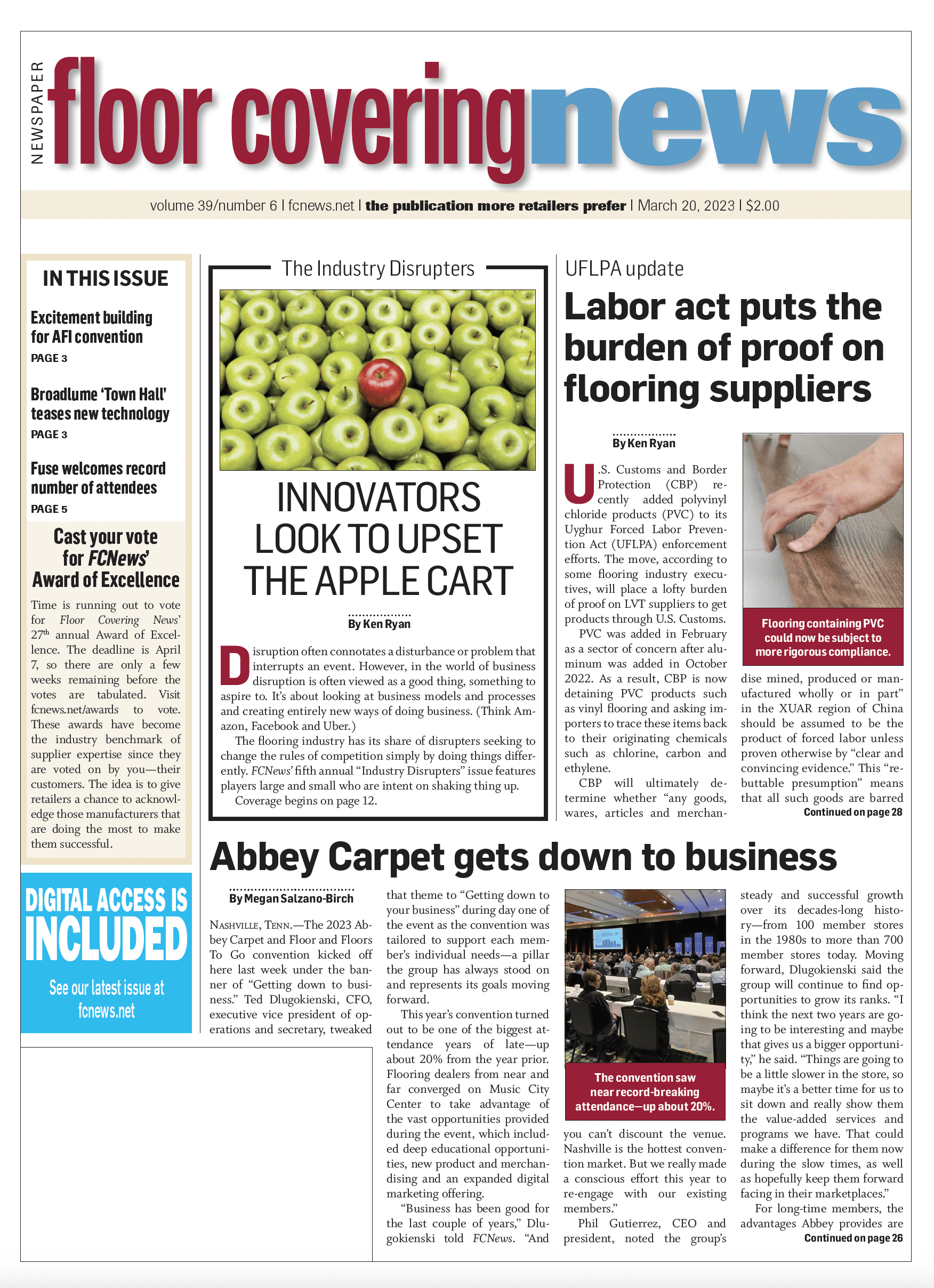
U.S. Customs and Border Protection (CBP) recently added polyvinyl chloride products (PVC) to its Uyghur Forced Labor Prevention Act (UFLPA) enforcement efforts. The move, according to some flooring industry executives, will place a lofty burden of proof on LVT suppliers to get products through U.S. Customs.
PVC was added in February as a sector of concern after aluminum was added in October 2022. As a result, CBP is now detaining PVC products such as vinyl flooring and asking importers to trace these items back to their originating chemicals such as chlorine, carbon and ethylene.
CBP will ultimately determine whether “any goods, wares, articles and merchandise mined, produced or manufactured wholly or in part” in the XUAR region of China should be assumed to be the product of forced labor unless proven otherwise by “clear and convincing evidence.” This “rebuttable presumption” means that all such goods are barred from entry into the United States under Section 307 of the Tariff Act of 1930.
Companies are now being advised to map their supply chains and ensure their supply chain partners are maintaining sufficient records to prove UFLPA compliance.
Some flooring executives say the burden of proof will be too much for some suppliers. “Insufficient tracing documents will fail to release the detained goods, putting the importer at a total loss of goods and risk reputational damage with the CBP for future imports,” Raj Shah, president of MSI, told Floor Covering News. “We encourage our dealers to take advantage of our robust on-hand inventory, which enables us to maintain our normal lead times. For those who direct-import, UFLPA provides an opportunity to let companies like MSI facilitate the business with our UFLPA tracing capabilities and stateside backup stock.”
China is the world’s largest producer of PVC, with estimates that between 10% and 20% of PVC emanates from the XUAR region under the UFLPA act. As one of the most widely used polymers, PVC is used as a base material across a range of products and applications, including vinyl flooring as well as pipe, credit cards, footwear soles and everyday household items.
Shah said there is already a movement in Europe to create a mass market for PVC-free flooring. There is also rising demand in North America for PVC-free options like hybrid rigid core flooring.
Retailers weigh in

By now, flooring retailers in the U.S. are accustomed to disruptions in global supply chains and have learned to adapt on the fly. At least for now, there does not appear to be a high degree of concern among dealers regarding the Labor Act. “Anytime a situation like this arises, we just shift our focus and advertising to our strength—which is what we have in stock or quick access to,” said Eric Mondragon, hard surface buyer for RC Willey, Salt Lake City. “We have the ability to ‘turn off’ a product in our system so it cannot be sold without confirming an ETA. We will also mark samples with a tag that simply states, ‘extended backorder.’ This allows our RSAs to stay away from these products if it does not meet the customers’ time frame; otherwise, if the customer’s project is months out—and product will arrive in time—they can confidently sell these products.”
Bill Zeigler, co-owner of Charles F. Zeigler & Sons, Hanover, Pa., has instructed his team to check suppliers’ inventories prior to completing an order or signing a contract. “Many customers will choose another product when it is more readily available,” he explained. “I would rather pass up a sale than go through all the shipping turmoil we have in the past.”
Mike Foulk, president of Foulk’s Flooring America, Meadville, Pa., is focusing on domestically produced options. “Due to multiple economic and political factors, we are trying to avoid Chinese products as much as possible. There are many American-made possibilities now that are available.”

